July 2, 2024 •
New Jersey Contribution Limits To Increase For 2025
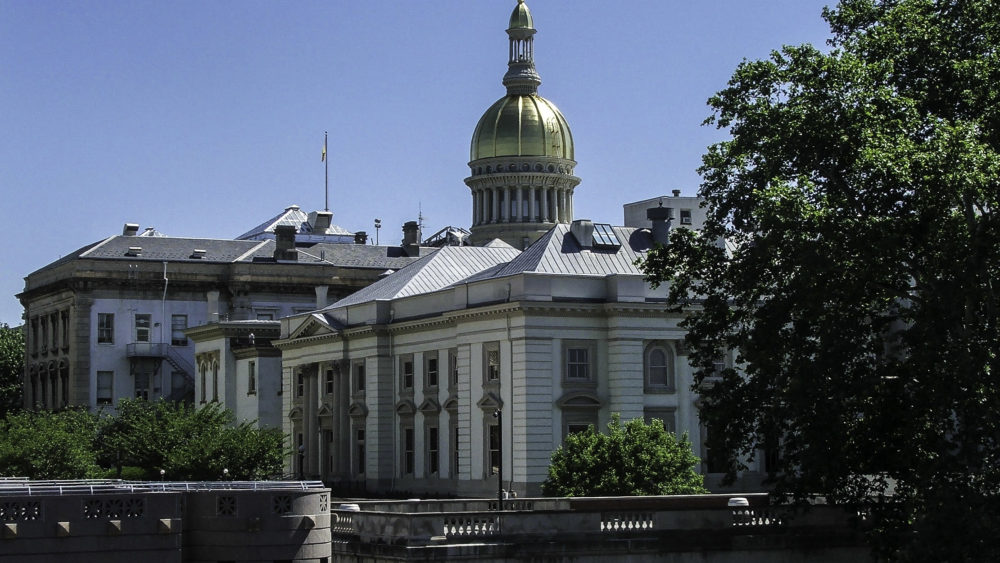
New Jersey Capitol Building
The New Jersey Election Law Enforcement Commission (ELEC) announced inflation adjustments to contribution limits for 2025. The contribution limit to gubernatorial candidates has risen from $4,900 in 2021 to $5,800 for the 2025 gubernatorial election. ELEC will also be applying […]
The New Jersey Election Law Enforcement Commission (ELEC) announced inflation adjustments to contribution limits for 2025.
The contribution limit to gubernatorial candidates has risen from $4,900 in 2021 to $5,800 for the 2025 gubernatorial election.
ELEC will also be applying inflation adjustments to limits, fines, and reporting thresholds for non-gubernatorial candidates and committees.
For example, the penalty for a first time reporting violation increased from $9,800 to $11,600.
December 12, 2023 •
New Jersey Judge Dismisses Lawsuit Challenging Recent Campaign Finance Overhaul

New Jersey Capitol Building
Superior Court Judge Robert Lougy recently dismissed a lawsuit filed by the head of the state’s enforcement agency challenging the constitutionality of a recent campaign finance overhaul. The lawsuit was initially filed by former Executive Director Jeff Brindle of the […]
Superior Court Judge Robert Lougy recently dismissed a lawsuit filed by the head of the state’s enforcement agency challenging the constitutionality of a recent campaign finance overhaul.
The lawsuit was initially filed by former Executive Director Jeff Brindle of the Election Law Enforcement Commission (ELEC), seeking to block sections of the Elections Transparency Act.
This included a provision allowing Gov. Phil Murphy to directly appoint the four members of ELEC without the advice and consent of the Senate within a temporary 90-day period.
A provision reducing the amount of time the commission has to investigate campaign finance violations was also challenged.
Lougy determined the legislation was focused on several valid purposes that pertained directly to its subject matter.
The case was dismissed with prejudice and therefore unable to be filed again.
November 8, 2023 •
New Jersey Democrats Retain Control Of The Legislature

New Jersey Capitol Building
Democrats were able to keep their legislative majority after Tuesday’s election. They won a key race by recovering a South Jersey seat that was lost two years ago and were able to combat Republican takeover in various competitive races across […]
Democrats were able to keep their legislative majority after Tuesday’s election.
They won a key race by recovering a South Jersey seat that was lost two years ago and were able to combat Republican takeover in various competitive races across the state.
Democrats won a majority of the 40 seat Senate and 80 seat Assembly races through campaigning on women’s issues and were able to capitalize on the backlash received from the U.S. Supreme Court’s 2022 decision overturning Roe v. Wade.
August 9, 2023 •
New Jersey Governor to Choose Lieutenant Governor Successor
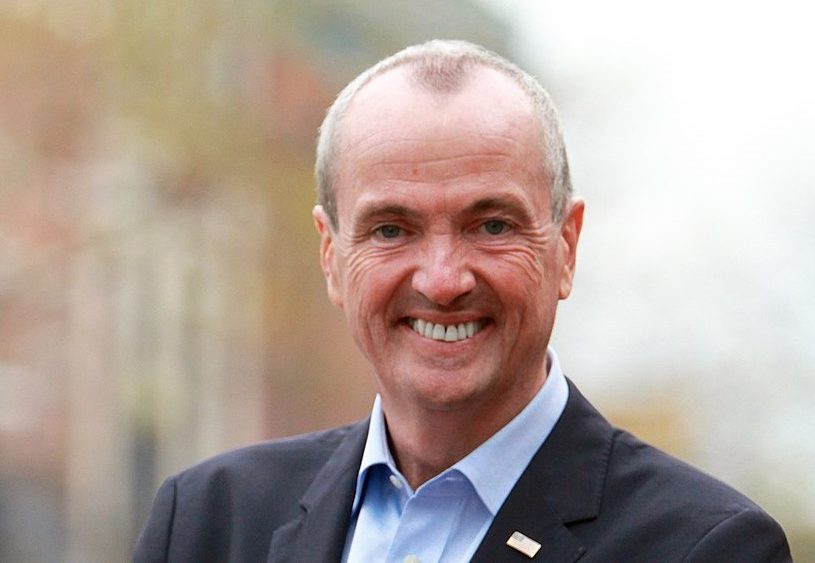
New Jersey Gov. Phil Murphy
Lt. Gov. Sheila Oliver died unexpectedly after a brief hospitalization on Tuesday, August 1. At the time, Oliver was acting governor while Gov. Phil Murphy was out of the country. In the absence of both Murphy and Oliver, the duties […]
Lt. Gov. Sheila Oliver died unexpectedly after a brief hospitalization on Tuesday, August 1.
At the time, Oliver was acting governor while Gov. Phil Murphy was out of the country.
In the absence of both Murphy and Oliver, the duties of acting governor went to Senate President Nicholas Scutari.
Oliver’s three-decade political career includes becoming the first Black woman to hold a New Jersey statewide elected office.
Under the state Constitution, Murphy now has 45 days to select a successor for Oliver’s elected position.
June 28, 2023 •
New Jersey Governor Phil Murphy Appoints ELEC Commissioners

New Jersey Gov. Phil Murphy
Gov. Phil Murphy appointed four new commissioners to the state’s campaign finance watchdog agency. The Election Law Enforcement Commission (ELEC) oversees campaign spending, lobbying, and pay-to-play in the state. In addition to providing Murphey with the power to appoint these commissioners, Senate […]
Gov. Phil Murphy appointed four new commissioners to the state’s campaign finance watchdog agency.
The Election Law Enforcement Commission (ELEC) oversees campaign spending, lobbying, and pay-to-play in the state.
In addition to providing Murphey with the power to appoint these commissioners, Senate Bill 2866 made a number of substantial changes to ethics laws.
These changes included increasing spending and contribution limits; overhauling pay-to-play laws; and shortening how long the state’s election watchdog commission can investigate campaign finance violations.
April 10, 2023 •
New Jersey Gov. Murphy Signs Campaign Finance Bill
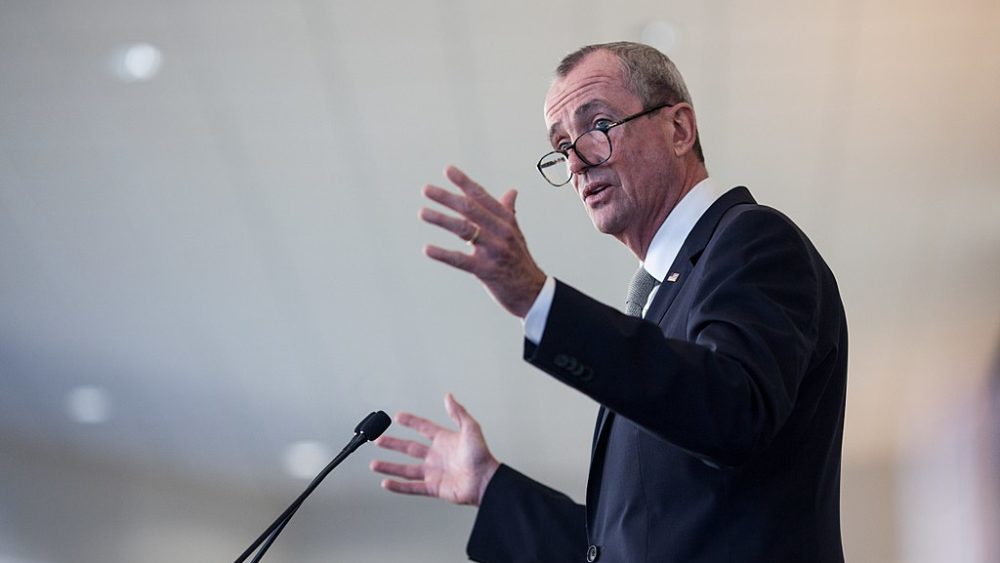
Gov. Phil Murphy
On April 3, Gov. Murphy signed Senate Bill 2866, the Elections Transparency Act. The act doubles the limit on contributions to candidates; triples contribution limits to state and political parties; and decreases the threshold for reporting contributions from $300 to […]
On April 3, Gov. Murphy signed Senate Bill 2866, the Elections Transparency Act.
The act doubles the limit on contributions to candidates; triples contribution limits to state and political parties; and decreases the threshold for reporting contributions from $300 to $200.
The act also creates additional independent expenditure reporting requirements and eliminates local pay-to-play rules, replacing them with the statewide pay-to-play law.
The Election Law Enforcement Commission’s operations are also affected.
The agency will now have only two years, instead of 10, to investigate violations of campaign finance law and Murphy is permitted to appoint an entirely new slate of commissioners to the Election Law Enforcement Commission without Senate approval in the next 90 days.
The new campaign finance limits and independent expenditure reporting requirements go into effect on June 27, while the provisions affecting state and local pay-to-play law took effect immediately.
March 22, 2023 •
Elections Transparency Act Passes New Jersey Senate

New Jersey Capitol Building
A bill overhauling the state’s campaign finance laws and the composition of its ethics agency is making its way through the New Jersey Legislature. Senate Bill 2866, the Elections Transparency Act, doubles contribution limits to candidates; allows Gov. Murphy to […]
A bill overhauling the state’s campaign finance laws and the composition of its ethics agency is making its way through the New Jersey Legislature.
Senate Bill 2866, the Elections Transparency Act, doubles contribution limits to candidates; allows Gov. Murphy to appoint an entirely new slate of commissioners to the Election Law Enforcement Commission without Senate approval; and requires the reporting of all independent expenditure contributions in excess of $7,500.
The act was introduced last June and passed by the Senate on March 20.
October 3, 2022 •
New Jersey Campaign Contribution Ban on Banks Does Not Apply to Trade Associations
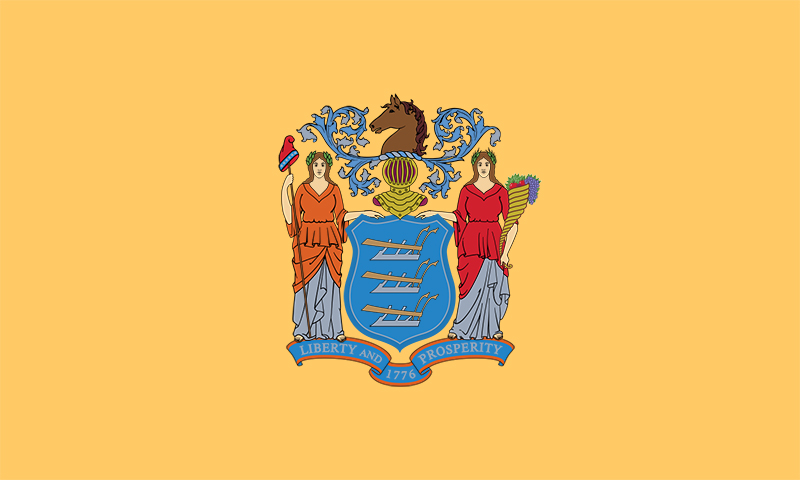
New Jersey State Flag - Public Domain
The U.S. Court of Appeals for the 3rd Circuit issued a ruling allowing trade associations representing banks to make campaign contributions. The New Jersey state law prohibits banks from providing financial support to candidates, but the court found there is […]
The U.S. Court of Appeals for the 3rd Circuit issued a ruling allowing trade associations representing banks to make campaign contributions.
The New Jersey state law prohibits banks from providing financial support to candidates, but the court found there is less risk of corruption when industry trade associations make the contribution because the member banks have varying interests.
The plaintiff in the case lacked standing to sue on behalf of individual banks, and the plaintiff’s First Amendment challenge to the law was rejected.
As a result, while banks cannot make political contributions to candidates in New Jersey, trade associations are now permitted to make such contributions.
November 11, 2021 •
New Jersey Requires Drug Utilization Review Board to Disclose Gifts

New Jersey State Flag - Public Domain
Public members of the state’s Drug Utilization Review Board are now required to file initial and quarterly disclosures reporting the financial benefits or interests they receive from members of the pharmaceutical industry. Upon appointment, public members will need to report […]
Public members of the state’s Drug Utilization Review Board are now required to file initial and quarterly disclosures reporting the financial benefits or interests they receive from members of the pharmaceutical industry.
Upon appointment, public members will need to report all meals, payments, gifts, salaries, stocks, or other investments they receive from pharmaceutical managers, pharmaceutical distributors, or pharmacy benefit managers in the preceding three years.
Members of the board will be required to update their financial disclosures quarterly, and reports will be publicly available.
November 4, 2021 •
New Jersey Gov. Phil Murphy Re-Elected

Gov. Phil Murphy
Incumbent New Jersey Gov. Phil Murphy defeated Republican Jack Ciatarelli in a tighter-than-expected race. Murphy is the first Democratic governor to win re-election in New Jersey in four decades.
Incumbent New Jersey Gov. Phil Murphy defeated Republican Jack Ciatarelli in a tighter-than-expected race.
Murphy is the first Democratic governor to win re-election in New Jersey in four decades.
October 1, 2021 •
Newark City Council Special Election Scheduled
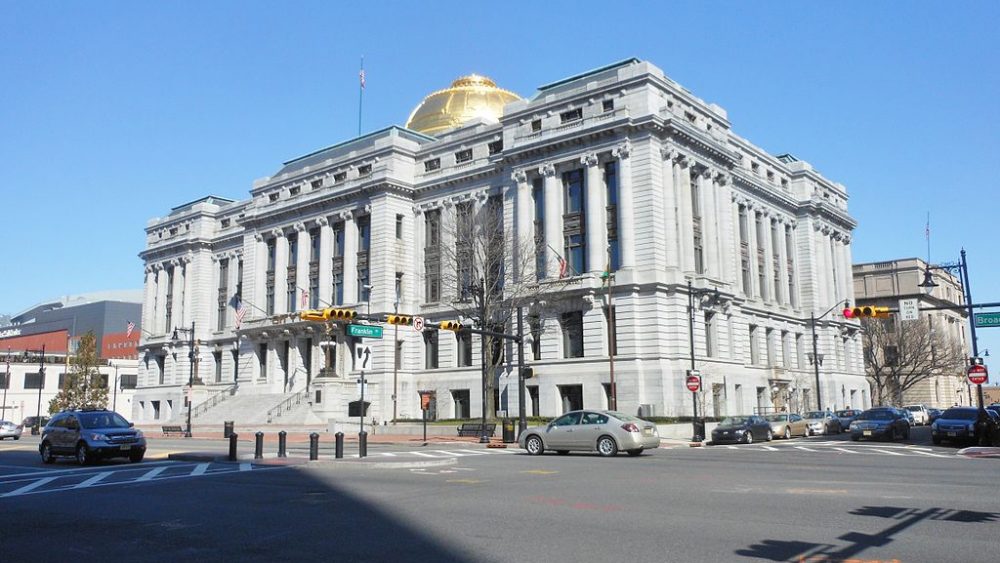
Newark City Hall - by Alexisrael
The Newark, New Jersey City Council announced a special election for the District 2 seat to be held on November 23. The seat is vacant after Councilwoman Sharon Hughes died last week. The winner of the special election will serve […]
The Newark, New Jersey City Council announced a special election for the District 2 seat to be held on November 23.
The seat is vacant after Councilwoman Sharon Hughes died last week.
The winner of the special election will serve out the remainder of the term set to expire April 30, 2023.
January 4, 2021 •
New Jersey Governor Postpones Elections

New Jersey Capitol Building
New Jersey Gov. Phil Murphy issued Executive Order 211 postponing elections to be held in the first quarter of 2021 until April 20. The executive order affects any special school elections and fire district elections previously scheduled for February and […]
New Jersey Gov. Phil Murphy issued Executive Order 211 postponing elections to be held in the first quarter of 2021 until April 20.
The executive order affects any special school elections and fire district elections previously scheduled for February and March.
The governor issued the executive order due to the continued COVID-19 pandemic and to allow officials to prepare safe elections.
The governor will decide whether to hold the elections by in-person or mail-in voting at a later date.
November 4, 2020 •
New Jersey Voters Approve Delay of Redistricting Schedule

New Jersey Capitol Building
New Jersey voters approved Question 3, a resolution proposing to delay the legislative redistricting schedule due to the collection of census data. The COVID-19 pandemic has caused the United States Census Bureau to delay its procedures for collecting census data. […]
New Jersey voters approved Question 3, a resolution proposing to delay the legislative redistricting schedule due to the collection of census data.
The COVID-19 pandemic has caused the United States Census Bureau to delay its procedures for collecting census data.
The approved constitutional amendment requires the Apportionment Commission to delay its adoption of new legislative districts until after the November 2021 election, if the United States Census Bureau does not provide the governor the redistricting census data by February 15, 2021.
August 26, 2020 •
Judge Orders Paterson, NJ City Council Special Election

Paterson, NJ - Jared Kofsky/Placenj.com
On August 19, Superior Court Judge Ernest Caposela voided the results of the May elections for the Paterson, New Jersey City Council’s Third Ward. Judge Caposela ordered a special election to fill the vacant seat with the five previously filed […]
On August 19, Superior Court Judge Ernest Caposela voided the results of the May elections for the Paterson, New Jersey City Council’s Third Ward.
Judge Caposela ordered a special election to fill the vacant seat with the five previously filed candidates.
After losing the May elections, incumbent William McKoy initiated a lawsuit.
The lawsuit cites fraud by the Councilman-elect Alex Mendez and disputes the election results.
Additionally, Mr. Mendez is currently facing voter fraud charges from the Office of the New Jersey Attorney General.
Finally, the special election will be held on November 3 along with a special election for the City Council’s Second Ward.
The Second Ward seat remains vacant after the May municipal elections ended in a tie after three recounts.
State and Federal Communications, Inc. provides research and consulting services for government relations professionals on lobbying laws, procurement lobbying laws, political contribution laws in the United States and Canada. Learn more by visiting stateandfed.com.

